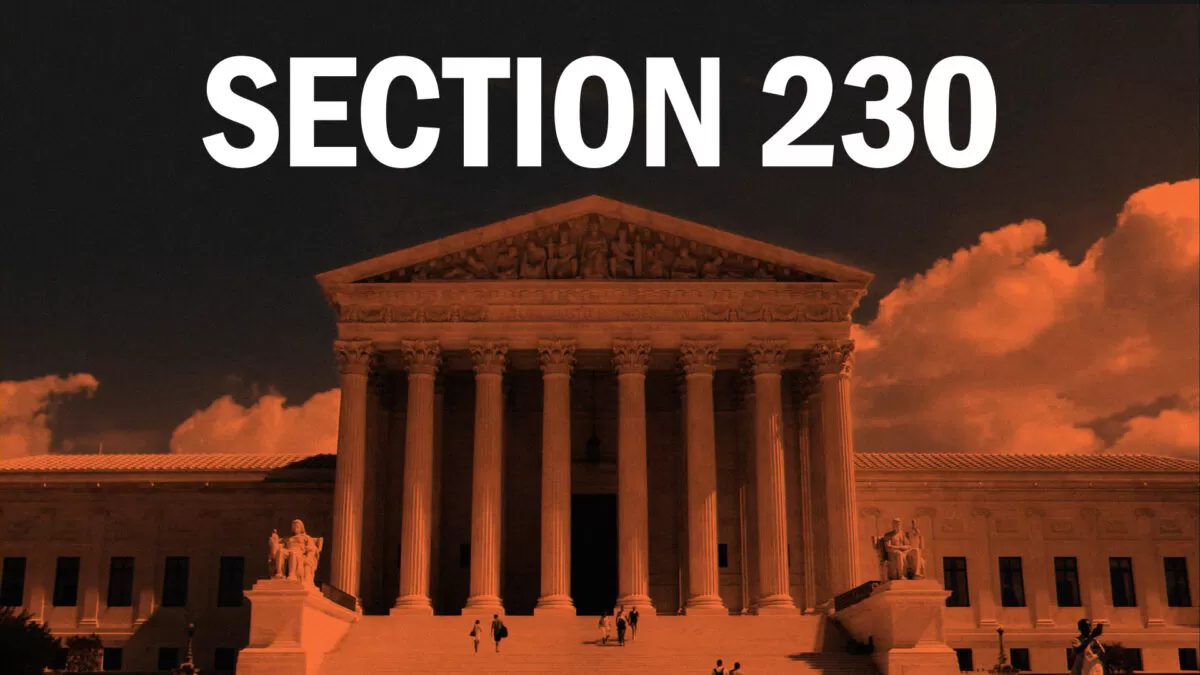The luxury of the Internet allows people all over the globe to connect, create and share ideas, and communicate on various levels. Our U.S. Congress recognized that for user speech to thrive on the Internet, “it had to protect the services that power users’ speech.”
This is where the law, Section 230 (originally part of the Communications Decency Act), comes into play. It protects Americans’ freedom of expression online. The law states: "No provider or user of an interactive computer service shall be treated as the publisher or speaker of any information provided by another information content provider." (47 U.S.C. § 230(c)(1)).
For over 25 years, the Section 230 law has kept us all safe on the internet. We are all covered under this law from individual users, websites, small bloggers, and big platforms. Users and services are kept from being sued for sharing photos, forwarding emails, and hosting online forums. When Section 230 was passed in 1996, approximately 40 million people were already using the internet. By 2019, more than 4 billion people were online. By now the estimated number of internet users is 5.16 billion worldwide.
The Section 230 law is considered to be an “exceptionalist” statute. This means that it treats the internet diversely. We are now allowed the opportunities to view things such as Wikipedia, a pee-operated encyclopedia, YouTube videos on how to repair your garage door, online marketplaces such as Amazon and eBay, and many other online options.
There are some significant issues with Section 230 law. Even though the law has allowed some internet giants to gain notoriety, it has also shielded them from liability in some cases that would typically find them liable if a situation had indeed occurred, just not on the internet. One example is with SESTA (The Stop Enabling Sex Trafficking Act), which is now a bill that is currently being discussed in our Senate. “Sex Trafficking” has been the most controversial argument against Section 230 protections. The fact is Section 230 regularly protects websites that permit and promote prostitution from liability. Supports of the bill do not oppose Section 230 and understand that the freedom of speech portion is causing issues. Because Section 230 is protecting harmful and illegal activity, SESTA would address some of the significant problems.
Because Section 230 creates a broad immunity for online platforms, a “free for all” has been made in reference to freedom of speech without any fear of censorship or legal liability for any content that may be posted by their users. With the internet being used by the vast majority for communication, work, school, marketing, and more, almost all of us are affected by Section 230 in some form or fashion.
Section 230 does not affect individuals based on race, gender, socioeconomic class, or orientation. Section 230 affects all citizens, regardless of any situation. The bill stands to protect those who create and distribute content online from multiple legal liabilities. By allowing such broad protections, Section 230 aids in reducing inequality and discrimination.
The Supreme Court has never heard a Section 230 case—until now. February 21 and 22, 2023, will be days that go down as the start of some significant changes for the internet as we use it today. An agreement has been made that the court will review Gonzalez v. Google, in which the plaintiffs argue that YouTube's "targeted recommendation" of videos falls outside the Section 230 shield. When they examine Section 230, the justices could end the internet as we know it.
With the goal of Section 230 to protect online platforms from liability for the third-party content that they distribute, technology has evolved and changed online experiences dramatically. The U.S. Congress has failed to revisit policy issues considering those changes. It now has fallen into the hands of the Supreme Court to determine the future of the 21st Century’s social media practices.







No comments:
Post a Comment